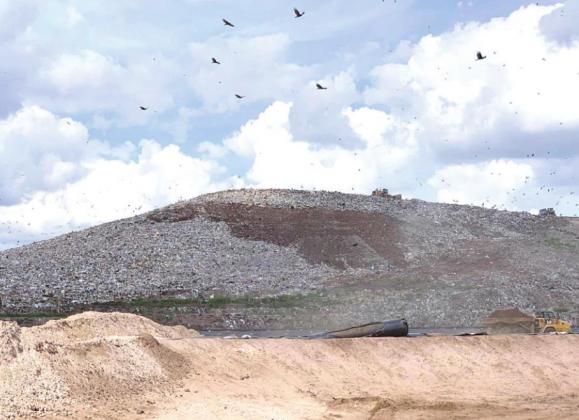The St. Cloud City Council has reached an agreement to pay Waste Connections of Osceola County, who operates the local JED Landfill, $2.48 million and to resume treating leachate at its sewage treatment plant.
The payment figure is for damages since June 2019, when the city stopped discharge of leachate into its wastewater treatment facility. That corresponded with overwhelming public outcry that Osceola County agreed to accept — then quickly terminated that agreement — coal ash, the waste product made by coal-fired electric power plants, at the JED Landfill.
The City Council voted in June 2019 to void the Waste Connections contract, saying the leachate ending up in the city’s treatment plant could potentially contain the toxic contents of coal ash.
Waste Connections filed a $16 million lawsuit last year seeking damages for balance of the leachate disposal agreement that had another 11 years on it at the time. St. Cloud has multiple and related agreements with Waste Connection regarding leachate, and have all been extended into 2032 as part of the agreement, a settlement that avoids litigation. With this payment, Waste Connections dismisses its lawsuit.
City Attorney Dan Mantzaris noted the money will come out of the city’s water and sewer funds.
Deputy Mayor Linette Matheny and Council Member Keith Trace voted against the proposal.
“I’m not in agreement for taking back on the leachate,” Trace said. “There’s a reason we tried to get out of the contract in the first place. I want to see we put on the correct rate for an industrial user to put liquid waste into our system and the rate to treat that.”
Leachate, a natural landfill byproduct, is created when rainwater filters through the waste at a landfill. When the rainwater comes in contact with buried wastes it creates (“leaches”) a new form of liquid waste.
Leachate collected at the landfill can be treated with municipal sewage at the sewage treatment plant. Waste Connections pays the city to accept and treat it.
Also as part of the agreement, the City has the option to buy-out of the agreement in the future, and will treat up to 80,000 gallons of leachate. Toho Water Authority, which will begin operating and maintaining the city’s water utility on Oct. 1, has the right to change the discharge site to address operational issues.
“We’ve been working closely with Toho Water with regard with the additional capacity and the history of the leachate produced, and they’re well aware,” Mantzaris said.
Mayor Nathan Blackwell called the issue, “A chapter we’re frustrated with.”
“But I’d like to move on and put this behind us,” he said.




